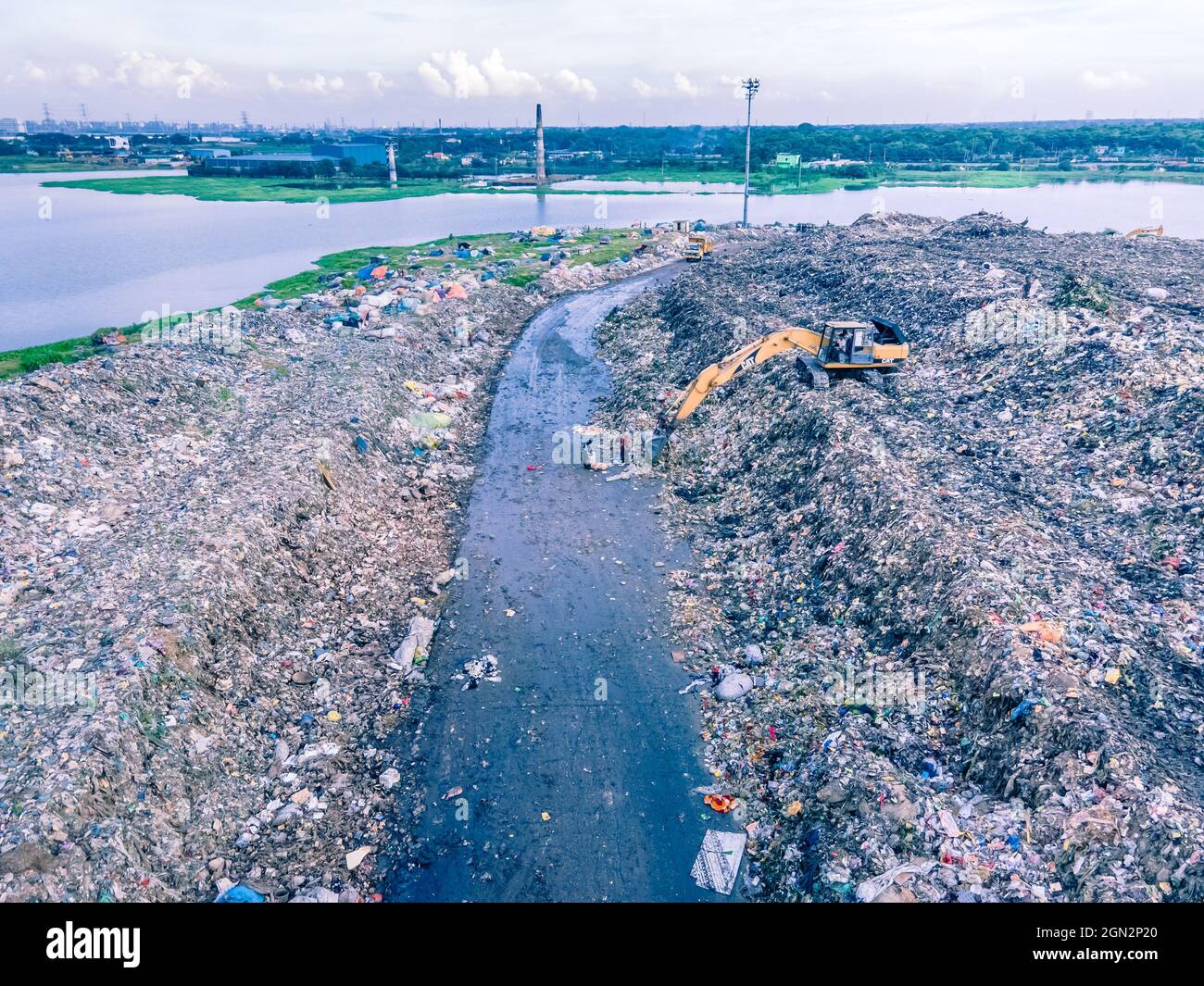Dhaka, Dhaka, Bangladesh. 22nd Sep, 2021. The near absence of an environment-friendly urban waste management system in Bangladesh is a major concern for the citizens. With the high rate of urbanisation in recent decades and the total urban population standing at 58 million today, the cities, Paurashavas and small urban centres produce a huge amount of solid waste every day. Besides urbanisation, improved living standards of the people and increased economic activities also resulted in a higher amount of waste per capita in the country. Bangladesh, the eighth most populous country in the wo

Image details
Contributor:
ZUMA Press, Inc. / Alamy Stock PhotoImage ID:
2GN2P20File size:
34.3 MB (3.2 MB Compressed download)Releases:
Model - no | Property - noDo I need a release?Dimensions:
4000 x 3000 px | 33.9 x 25.4 cm | 13.3 x 10 inches | 300dpiDate taken:
22 September 2021Photographer:
ZUMA PressMore information:
This image could have imperfections as it’s either historical or reportage.
September 22, 2021, Dhaka, Dhaka, Bangladesh: The near absence of an environment-friendly urban waste management system in Bangladesh is a major concern for the citizens. With the high rate of urbanisation in recent decades and the total urban population standing at 58 million today, the cities, Paurashavas and small urban centres produce a huge amount of solid waste every day. Besides urbanisation, improved living standards of the people and increased economic activities also resulted in a higher amount of waste per capita in the country. Bangladesh, the eighth most populous country in the world having 1, 015 persons per sq. km of land area, is faced with an acute urban waste management problem. This is a threat to human health through pollution of surface and ground water, the soil and the air. The solid waste generation in urban areas of Bangladesh amounts to around 25, 000 tons per day, which translates into 170 kg per capita per year. The Dhaka city produces one-quarter of all urban waste in the country. The total urban solid waste is projected to grow up to 47, 000 tons per day by 2025, due to the growth of population and increase in per capita waste generation. In 1995, per person average generation of urban solid waste was 0.49 kg/person/day but this amount is expected to increase to 0.60 kg/person/day by 2025. Data on waste collection efficiency in different urban areas varies from 37 percent to 77 percent, with an average of 55 percent. Solid waste includes everyday items that are discarded by the public. The waste comes from residential, commercial, institutional, and industrial sources. The type of urban waste has been changing over time as plastic and polyethylene goods are increasingly thrown away by people affecting the environment and clogging the drainage system. In Dhaka city alone, millions of bags are dumped every day and a big part of that go into the drains, lakes and rivers. Again, (Credit Image: © Mustasinur Rahman Alvi/ZUMA Press Wire)